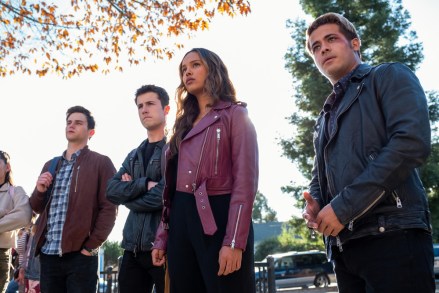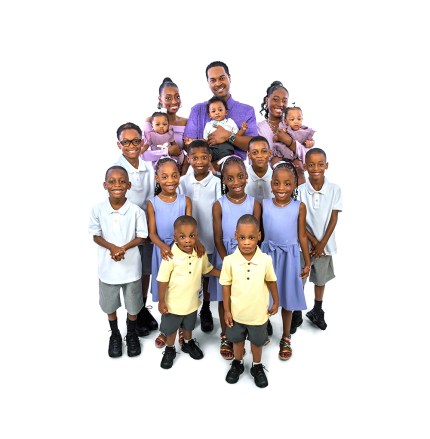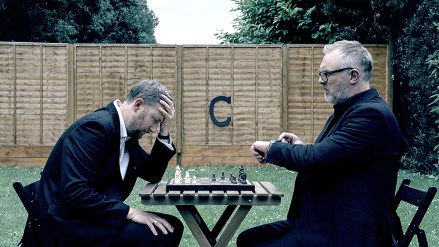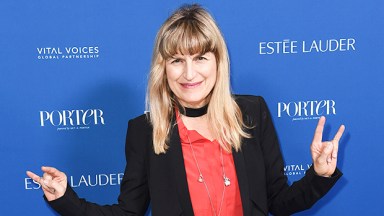
Catherine Hardwicke serves as the director of the Quibi series Don’t Look Deeper, which is currently streaming now. The show is set “15 minutes into the future” and stars Helena Howard as a high school senior named Aisha, who can’t seem to shake this feeling that something’s not right about her. She soon discovers that she’s actually not human.
Catherine is no stranger to coming of age stories, and Don’t Look Deeper is one of those in its own right. The beloved director, who helmed movies like Lords of Dogtown and Twilight, talked EXCLUSIVELY with HollywoodLife about Aisha’s journey, the impact of technology, and more. Read our full Q&A below.
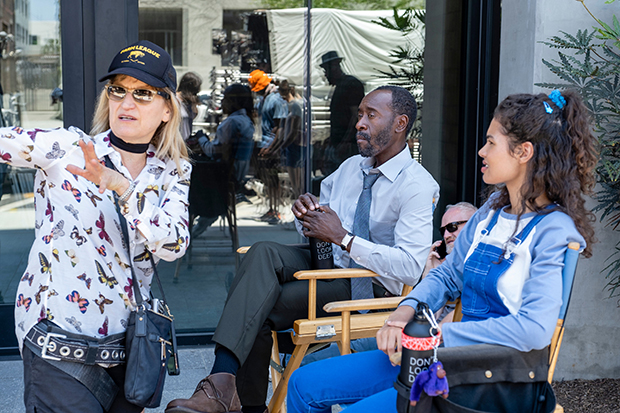
Why was this project something that you wanted to take on?
Catherine Hardwicke: When I read the script, it really drew me in instantly because, of course, we know that I like teenage coming of age stories. Stories about searching for your identity, like a Thirteen, trying to figure out who am I as a person. Am I a good girl? Bad girl? Good student? Wild child? In this one, you have Aisha trying to figure out — why does something feel off? Something feels wrong about me. She has this uneasy feeling. Her self discovery, her identity crisis, turns out to be much more profound than most when she discovers that she’s AI and not human. So just that whole exploration of our love-hate affair that we have with technology and also the idea of: what makes a person human? Is it skin deep? Is it what’s under your skin? All those different things and exploring humanity I thought were quite fascinating.
As we move forward in this era of technology, something like this really makes you think about the impact technology has on society and where it’s going. Did you think about those things as you were directing and reading the script?
Catherine Hardwicke: Yes. One thing I thought was fascinating is that you have two levels of AI, one that’s completely obvious like the robots that are in school that intentionally have faceplate lines, and then you have those that are not intentional. So you see already like the spectrum of possibilities that we are facing. How smart is our Alexa? How much data is she sending back to Amazon? These are the kind of things that we don’t really know. It’s so fascinating. Machine learning, AI learning, all of it, all these lines that people have been exploring and thinking about I think are opened up and exploited and used as metaphors in the show.
Don’t Look Deeper is much on a different type of episodic length than most shows. Did you find any major differences when directing a show for Quibi?
Catherine Hardwicke: That was a big challenge right there. How do you give these quick bites, these little elements that you feel you’ve packed in enough and really got somewhere into the characters and the plot, in only 7 minutes? That’s a good challenge for a filmmaker. We always try to make our scripts efficient and tight, but you even have to take it to the next level in this case, because if an episode was even one frame longer than 10 minutes it wasn’t allowed. So you’re just very careful thinking how much information can I pack into a shot? Can I have multiple people in the frame and see their reactions at the same time? That was a great challenge to make each episode end at a pivotal moment that you wanted to tune in and see the rest. The other challenge was it had to be able to be watched in the vertical or horizontal format. It was a huge new world shooting in vertical.
What was the filming process like?
Catherine Hardwicke: We were lucky enough, as opposed to like a TV show where I just direct only my episodes, like on This Is Us, because we didn’t have the scripts for the other episodes since they were being written as it goes. So if we went and filmed at one character’s house, we will maybe just go there for one little scene on This Is Us. But in our case, we had all the scripts before we started. So we could go to Aisha’s house and shoot there for all the scenes like you would in a movie. We did know the whole scope of the project before we started, which was obviously a good thing in this case because it’s so much about memory and the characters did need to know all the different things that they had already been through before starting.
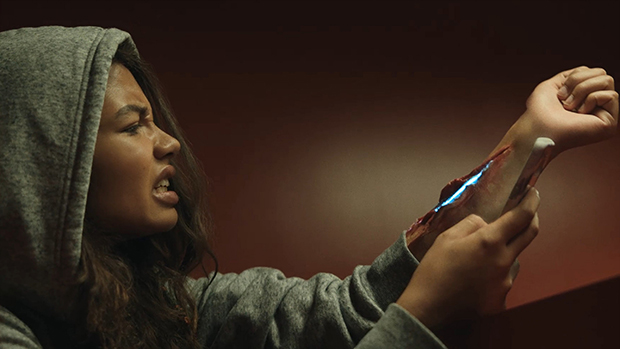
With this show you really get to work closely with Helena Howard. What was it like working with her?
Catherine Hardwicke: She had that beautiful breakout performance in Madeline’s Madeline like a year or so ago. I’d seen that performance, and she was very powerful, very raw. She has full access and command of all her feelings and her emotions. Seeing that, I knew she was going to be amazing in this process and she was. She is just very grounded in a way that she won’t say a line, she won’t do anything that doesn’t feel like it comes from inside her. She has to feel it. She has to live it. She also had an incredible, uncanny way of becoming the AI character when she would go into a trance. She figured out a way that she didn’t blink for like four minutes. I didn’t tell her that but she could. From her dance training and things, she could move her body in very interesting ways. I thought she was great.
What are you looking for in a project now? Has what you’re looking for changed over the years?
Catherine Hardwicke: I don’t know how much has changed because I’ve always looked for things that just draw you in, that make you feel for this other person, and make you see life in a way through a different set of eyes. I like that idea that storytelling can really open up other worlds for us, and we can actually start learning about humanity and not people that don’t look exactly like us. But we could feel what they’re feeling, we can have empathy for others, and you get transported to other characters, other worlds, other planets, other environments, in a story. That’s so powerful. It can be such a healing process, which is what we need now more than ever, of course.
